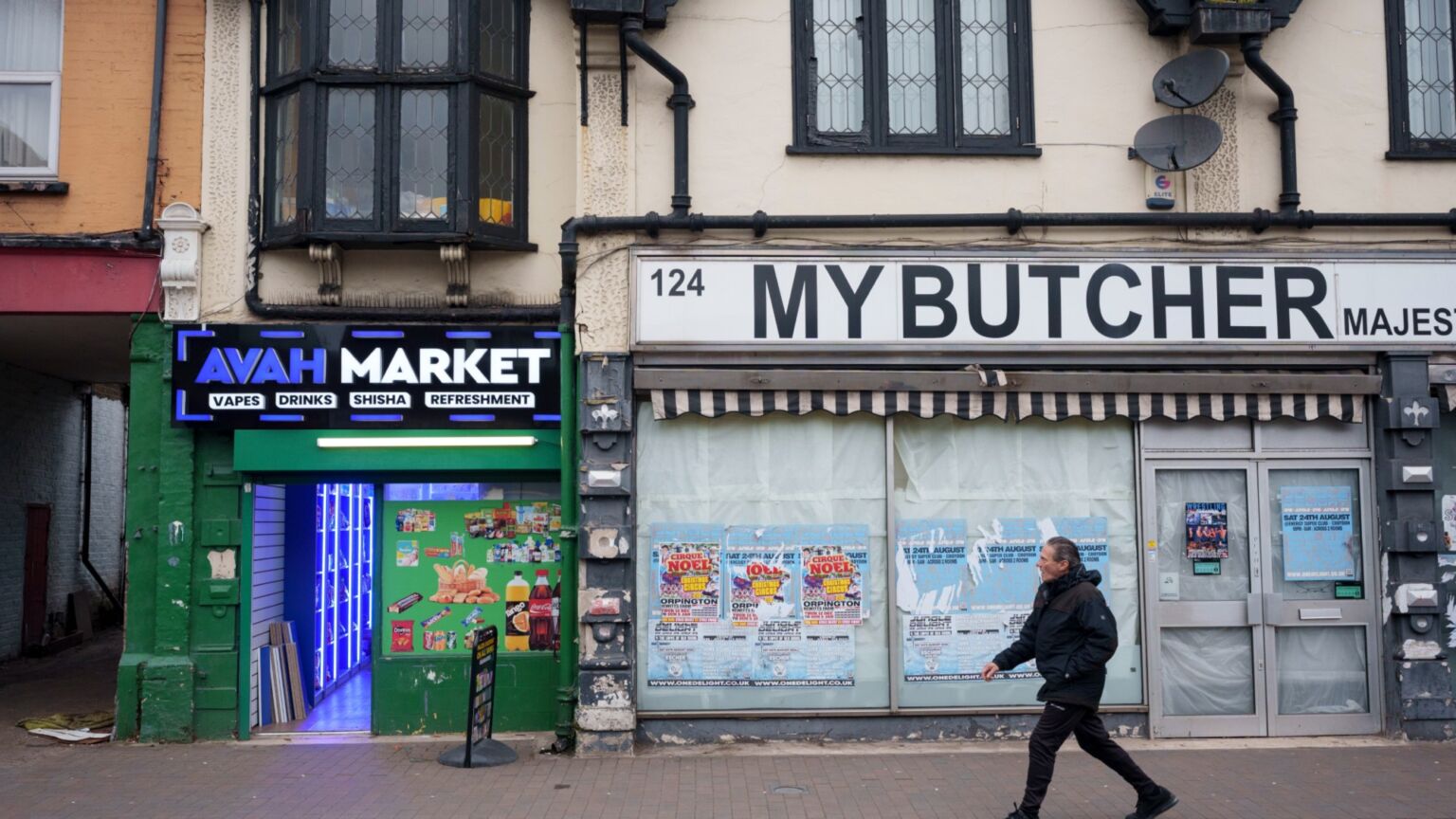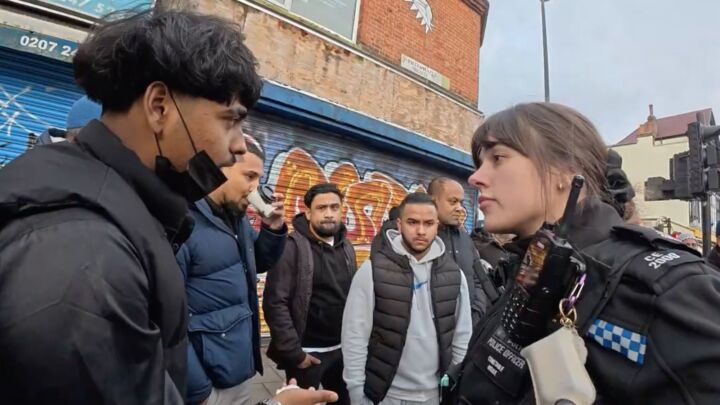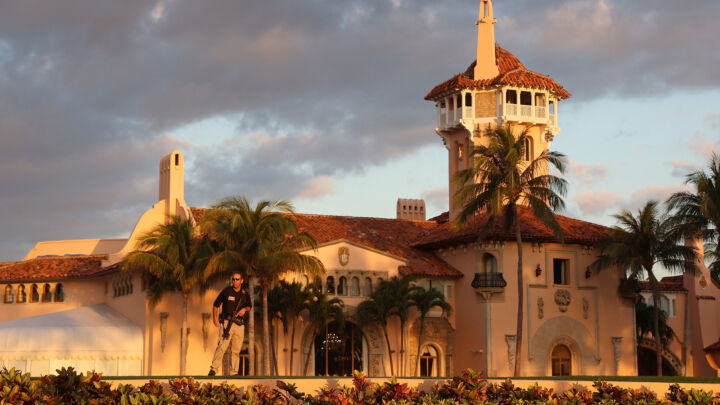Our decrepit high streets are a window into broken Britain
The Great British high street is now synonymous with decay, crime and exploitation.

Want unlimited, ad-free access? Become a spiked supporter.
Little exemplifies the UK’s decline as much as the death of the great British high street. With nothing left to buy or browse, they have become anti-social, run-down and depressing. And yet liberal journalists and establishment politicians remain in complete denial. Either they are truly ignorant of what is going on in Britain’s most disadvantaged communities, or they simply don’t care.
High-street shops have been experiencing widespread closures since the 2008 financial crash. Household names like Woolworths and Debenhams are no more, chains like Argos have retreated into retail parks and large supermarkets and post offices are quietly disappearing. After two years of pandemic lockdowns, our high streets looked like ghost towns.
Now, they have become something even more sinister. Outside the endless rows of takeaway shops, delivery riders sit on electric bikes, staring into their phones, waiting to be pinged for work. Barber shops and mini-marts dominate every corner.
These mini-marts are not to be confused with the corner shops of old. Often, they are fronts for dangerous organised crime rings. These shops sell everything from illegal cigarettes to counterfeit spirits. Disturbingly, there have been instances of mini-marts selling cigarettes containing dead flies, human excrement and lead, as well as ‘vodka’ containing extremely high levels of alcohol. Rather than serving the community, they seem to be doing their best to kill them.
The BBC recently added another chapter to the depressing tale of our high streets. Two undercover reporters revealed that some of Britain’s poorest neighbourhoods are being used and abused by an organised gang working alongside small-boat, people-smuggling rings.
According to the investigation, extensive networks of (mainly Kurdish) businesses, legal advisers, carpenters and shop fitters are aiding Channel migrants in obtaining illegal work – sometimes even businesses of their own. They do so by providing fake company directors, stock to sell, card readers, bank accounts and ‘staff’. The BBC reporters, posing as illegal migrants, were told it would be easy for them to make big profits by running a shop selling illegal vapes and cigarettes. They noted that once migrants have agreed to work with the ‘ghost directors’ (men who have dozens of illicit businesses listed on Companies House), they become trapped in a system of modern slavery – forced to buy stock and then man the stores for hours.
Bringing attention to the tragic decline of our high streets should not be a left or right issue. Yet, somehow, it is. I’ve not heard any major left-wing organisation talking about the inherently class-based nature of this community erosion. Nor have I heard a peep from the trade unions.
The conclusion is hard to ignore. The liberal establishment seems to be turning a blind eye both to the poisoning of Britain’s poorest with contaminated fags and counterfeit booze, and to the destruction of this key part of so many local communities. This shadow economy is providing work for migrants who would not otherwise have it. And since the police have neither the will nor the manpower to prosecute those behind these ‘businesses’, nothing will change.
If the British high street is the shop window for the nation, then what are we advertising? A total indifference to working-class communities.
Lisa McKenzie is a working-class academic.
You’ve hit your monthly free article limit.
Support spiked and get unlimited access.
Support spiked and get unlimited access
spiked is funded by readers like you. Only 0.1% of regular readers currently support us. If just 1% did, we could grow our team and step up the fight for free speech and democracy.
Become a spiked supporter and enjoy unlimited, ad-free access, bonus content and exclusive events – while helping to keep independent journalism alive.
Monthly support makes the biggest difference. Thank you.








Comments
Want to join the conversation?
Only spiked supporters and patrons, who donate regularly to us, can comment on our articles.